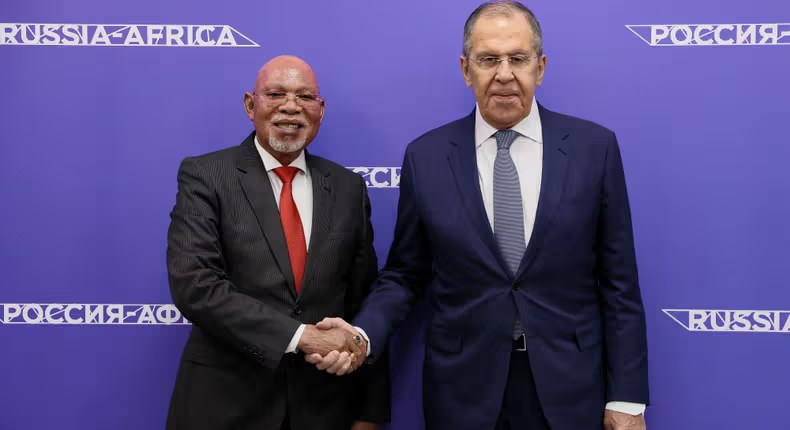Uganda is taking decisive steps towards enhancing its energy security by negotiating a nuclear energy deal with Russia. The announcement was made by Uganda’s Foreign Minister, Abubaker Jeje Odongo, who revealed in a recent interview with the Russian news outlet Sputnik that the deal would involve the construction of a nuclear power plant in Uganda. This strategic move is part of Uganda’s broader efforts to address its rising energy demand, especially as the country looks to industrialize and power its future growth.
The nuclear partnership with Russia is part of a growing trend across Africa, as several nations on the continent look to harness nuclear energy to meet their energy needs. In line with this trend, Russia’s state-owned nuclear energy company, Rosatom, has been actively expanding its influence in Africa, recently securing agreements with countries such as the Republic of Congo, Guinea, and Algeria. These agreements are part of Russia’s push to play a key role in the continent’s energy sector, as African nations explore new energy solutions to meet the needs of a rapidly growing population and economy.
Uganda’s Growing Need for Reliable Energy
Uganda, like many African countries, is grappling with an increasing demand for energy. The country’s push towards industrialization, coupled with population growth, has led to a significant rise in electricity consumption. To meet these growing needs, Uganda is looking at nuclear energy as a stable, low-carbon alternative to traditional fossil fuels. The government sees nuclear power as a crucial component in diversifying the country’s energy mix and providing a reliable energy source to support economic and industrial development.
Minister Odongo explained that the push for nuclear energy stems from the need for a long-term solution to Uganda’s energy challenges. As African countries, including Uganda, continue to industrialize, the demand for energy will only increase, and nuclear power presents a solution that can meet these needs while reducing environmental impact.
A Step Toward a Nuclear Future
Uganda’s interest in nuclear energy is not new. Earlier in October 2024, Uganda’s Minister of Energy, Okaasai Sidronius Opolot, shared that the government had begun detailed planning for the establishment of a nuclear power plant. This includes identifying potential sites for the plant and evaluating the country’s uranium deposits for possible use in the nuclear fuel cycle. Uganda has already taken steps to formalize its commitment to nuclear energy by signing a memorandum of understanding (MoU) with Rosatom, which will assist in planning and implementing the project.
The government has already conducted preliminary studies to assess the viability of nuclear power in Uganda, and these findings have set the stage for further discussions with Rosatom. Uganda’s growing partnership with Russia will play a crucial role in providing the expertise, technology, and support needed to bring this vision to life.
Strengthening Relations at the Russia-Africa Partnership Forum
Uganda’s Foreign Minister Odongo further solidified his country’s commitment to nuclear energy and expanded ties with Russia during his participation in the First Ministerial Russia-Africa Partnership Forum, held in Sochi, Russia, from November 9–10, 2024. Alongside Hon. Gen. Wilson Mbadi, Uganda’s Minister of State for Trade, Odongo led a ministerial delegation to the forum, where discussions centered on enhancing political, economic, and energy cooperation between Russia and African nations.
The forum highlighted Russia’s growing presence in Africa’s energy sector, particularly in nuclear energy. The cooperation between Russia and Uganda is seen as a model for other African countries looking to partner with Russia on energy projects, particularly nuclear power, to meet their energy challenges.
The Road Ahead for Uganda’s Nuclear Ambitions
The proposed nuclear power project in Uganda is not only a response to the country’s immediate energy needs but also an important step towards securing a sustainable and diversified energy future. By partnering with Russia, Uganda gains access to one of the world’s leading nuclear energy players, with extensive experience in nuclear power plant construction, fuel supply, and waste management.
For Uganda, this partnership could set the stage for significant advances in the country’s energy infrastructure. The construction of a nuclear power plant would provide a stable, long-term energy source, reducing dependence on fossil fuels and contributing to the country’s environmental sustainability goals. Moreover, the project would also support the country’s industrialization ambitions by providing a reliable power source for industries and businesses.
As the demand for energy continues to grow across Africa, Uganda’s nuclear ambitions serve as an example for other nations considering nuclear energy as part of their energy mix. The collaboration with Russia is a key part of Uganda’s strategy to meet its energy needs and achieve its long-term development goals. With continued planning and partnership, Uganda could soon become a leader in nuclear energy in East Africa, paving the way for a brighter, more sustainable energy future.








